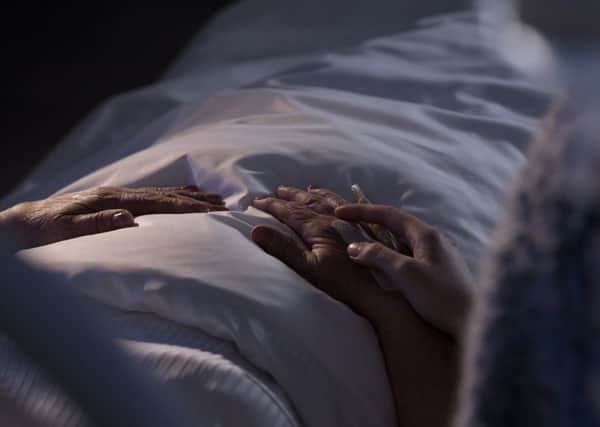End of life guidelines revised after Scots rethink


The draft guidelines from the National Institute for Health and Care Excellence (Nice) for English hospitals follow the abolition of the Liverpool Care Pathway (LCP), which recommended withdrawal of treatment, food and water from some sedated patients in their final hours or days.
The controversial regime was phased out in Scotland last year after a review found serious failings in how it was being implemented.
Advertisement
Hide AdAdvertisement
Hide AdThe son of 83-year-old patient Jean Tulloch urged Lothian and Borders Police to investigate the LCP in 2013 following his mother’s death at the Western General Hospital in Edinburgh.
Nice’s draft recommendations state people in their last days of life should be encouraged to drink if able to and receive assisted hydration if appropriate, but this be reduced or stopped if there is any sign of harm or no sign of benefit.
They also emphasise the importance of recognising when patients have a chance of recovery in the light of cases where elderly patients were left to die when they could have got better.
It said the new guidelines aim to help doctors and nurses identify when someone is entering their final days of life and places the individual and their loved ones at the heart of decisions about their care, said Nice chief executive Sir Andrew Dillon.
Greater involvement and communication with patients and families in the final days should be welcomed, said Dr Pamela Levack, medical director of Scottish palliative care charity Patch. Dr Levack, who worked as a consultant in palliative medicine in Tayside for 15 years, said: “In a hospital setting, which is typically very busy, it can be even more difficult to diagnose when someone is dying.
“Therefore it is even more important in this setting that skilled palliative care is a valued core activity. As the report says, the emphasis on explaining to patients and their families where they are in their illness is fundamental.”
Palliative care guidelines for Scotland were published last year and the Scottish Government is developing a strategic framework to be published at the end of the year.
Commenting, Nichola Summers, Marie Curie Divisional General Manager for Scotland, said: “The best way to improve end of life [care] is through continuous professional development for healthcare professionals and support for funding research in the area.
Advertisement
Hide AdAdvertisement
Hide Ad“We know nearly 11,000 people in Scotland don’t get the palliative care that they need, often because healthcare professionals don’t recognise that people are at the end of life.”
MSPs have pledged to further investigate the quality of end-of-life care, with the launch of a Holyrood committee into palliative care earlier this month.
The Nice consultation will run until September.